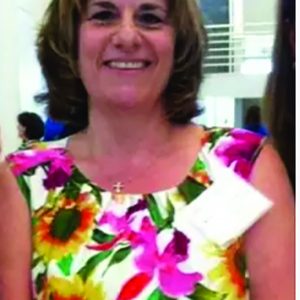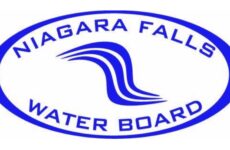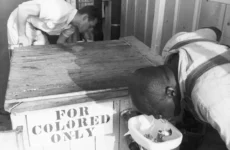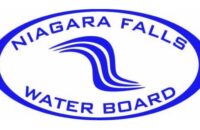Mike Hudson
Airbnb is a website for people to list, find, and rent lodging. Founded in August 2008 and headquartered in San Francisco, California, the company is privately owned, and in the business of matching vacationers and business travelers with locals who want to rent out a room, apartment or house.
![On Kristen’s airbnb listing she posts nine pictures of the room she rents in her house on Orchard Parkway. The reviews have been favorable. There about 300 other property owners in Niagara Falls who also list rooms or apartments for rent by the night to tourists. If Kristen rents her room out for 60 nights per year she earns about $3,000 which will make a small dent in the super high property taxes she [and everyone in Niagara Falls] has to pay. In a free society, we are trying to find anything wrong with this free enterprise.](https://niagarafallsreporter.com/wp-content/uploads/2016/04/k-2-1.jpg)
On Kristen’s airbnb listing she posts nine pictures of the room she rents in her house on Orchard Parkway. The reviews have been favorable. There about 300 other property owners in Niagara Falls who also list rooms or apartments for rent by the night to tourists. If Kristen rents her room out for 60 nights per year she earns about $3,000 which will make a small dent in the super high property taxes she [and everyone in Niagara Falls] has to pay. In a free society, we are trying to find anything wrong with this free enterprise.
It has over 1,500,000 listings in 34,000 cities and 190 countries. But typically, in Niagara Falls, this highly successful Mom and Pop business has become the center of controversy.
A 2011 New York State law prohibits renting residential units for less than 29 days, with certain exceptions. The law was put in place because private individuals renting out their spare bedroom for a night or a week don’t pay bed taxes.
In Niagara Falls, virtually all of the bed tax money – around $1 million a year — gets handed over to John Percy and his Niagara Tourism and Convention Corp. What happens to it then is anyone’s guess. Percy is famously secretive about how he spends the taxpayer’s money.
According to the Airbnb website, there are more than 300 people in Niagara Falls offering accommodations. It is a way to bring in a little extra cash here in the most heavily taxed municipality in the most heavily taxed state in the country. Nobody’s getting rich, nobody’s even making a living, but every little bit helps in the city’s moribund economy.
Perhaps the best known of the Airbnb hosts in Niagara Falls is city Councilwoman Kristen Grandinetti, who – according to the reviews given by lodgers in her Airbnb profile – does a bang up job of providing hospitality, Niagara Falls style.
Eduardo, a visitor from Ciudad Nezhualcoyotl, Mexico who was here in March, sang Grandinetti’s praises in broken English.
“I think this is one of the best host in Niagara Falls, I recommend stay with Kristen to anyone who visit Niagara Falls. You can go walking to Niagara Falls, it takes you around 20 minutes, all you need is very close to the house, a bus stop, a convenience store. Kristen is a very nice person and help you as she can. I liked very much my stay with Kristen,” he wrote.
Likewise, Rahul, from Albuquerque, who stayed at Grandinetti’s Orchard Parkway home in January.
“Thank god for Kristen. She is literally a godsend the other day. We were running late due to snow and couldn’t be at the house till late in the night. Kristen was waiting for us till we were there and we couldn’t be more grateful. The house was charming and exceptionally neat. We got a good night’s sleep and Kristen made us tea in the morning. All in all, the stay and Kristen’s hospitality were unmatched and we would gladly be back another time,” he wrote.
For her part, the city Councilwoman and schoolteacher seems to very much enjoy her sideline as a hospitality provider.

Hey, I’m Kristen!
Niagara Falls, New York, United States · Member since April 2015. You can rent a room in the councilwoman’s house for $55 per night, which, the councilwoman points out, is cheaper than nearby hotels which cost at least $75, plus bed tax.
“I am a teacher in the local school system. I am very active in local politics and the community,” she writes in her profile. “I spent many years in the hospitality industry, including 15 years as the assistant manager of a local B and B. I love Niagara Falls and I want to showcase its beauty.”
Not so fast, says Mike Kirsch, of the Niagara County Department of Health.
“Keep in mind anything other than a hotel, motel, hostel or bed and breakfast is illegal,” he said. “This why vacation rentals are often referred to as Illegal bed and breakfast or illegal hotels. So if you want to rent a room, or part of a duplex you must be a bed and breakfast.”
It’s not as easy as it sounds.
According to Kirsch, to run a legal bed and breakfast you must meet fire codes, have a licensed architect sign off on fire code, receive an inspection from city code enforcement and get a certificate of compliance, have a Niagara County Health Board inspection, register in Lockport as a business, obtain a state tax number and register to pay the city bed tax.
“If you have not followed this you are an illegal bed and breakfast. The Niagara County Health Board refers to anything other than a BNB as an illegal bed and breakfast,” he said. “You would also need a special use permit in most zones in the city of Niagara Falls. They have done some research on this subject in Niagara Falls. Contrary to popular belief you cannot rent apartments in a commercial apartment build short term. So as can be seen on Airbnb this is a huge problem in the city.”
There are many “huge problems” in the city. Do 300 city property owners trying to offset some of the most onerous property taxes in the country by occasionally renting a room to a tourist constitute one of them?
Airbnb regularly receives thousands of emails from people who are on the brink of losing their homes through foreclosure due to financial hardship from the economic recession; these people said that they depended on their continued ability to sublet rooms in their residences.
In May 2013 a New York City judge penalized Airbnb user Nigel Warren with a $2,400 fine. In April 2015, Airbnb asked the state legislature for legalization in return for the collection of hotel taxes.
In Niagara Falls, more than 300 homeowners like Grandinetti pick up a few extra dollars and pump it right back into the local economy, eating out at a restaurant, buying food at the supermarket or making a car payment.
Putting them out of business would mean a few extra dollars for John Percy – who pays himself a salary of $140,000 a year – plus $200,000 in travel and expenses – and the NTCC, which already benefits from nearly $2 million annually in taxpayer money.
In a city that is constantly trying to portray itself as “business friendly,” this would seem to make no sense at all.
But then, this is Niagara Falls, where making sense is often the last thing on anyone’s mind.




















